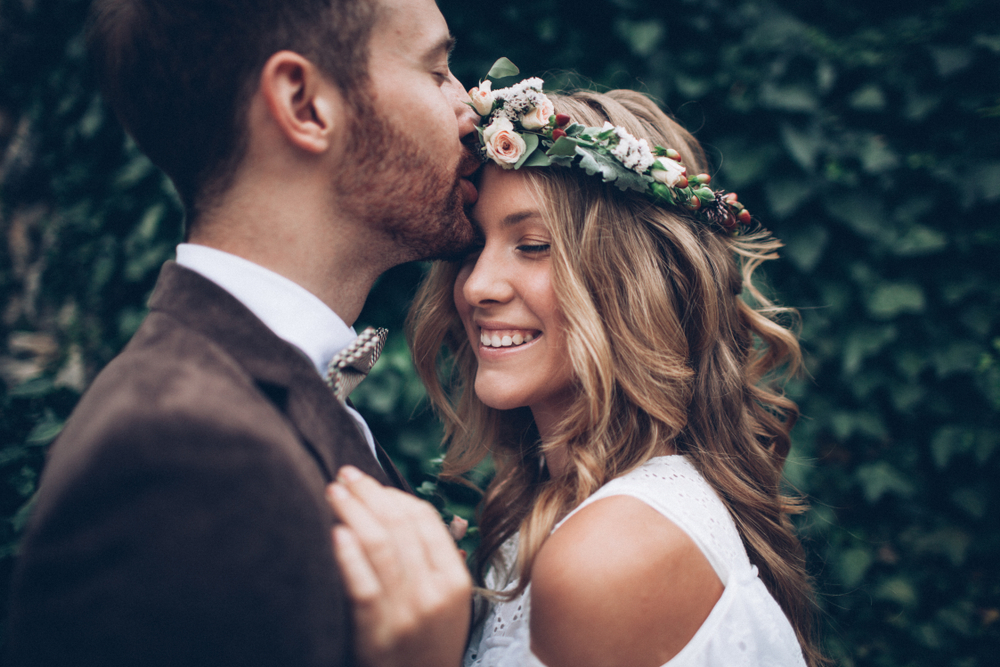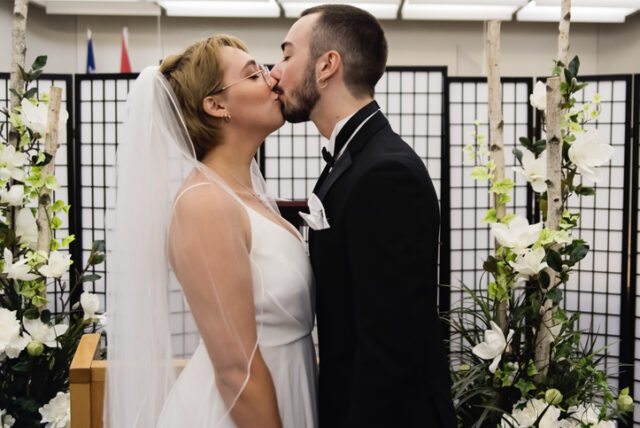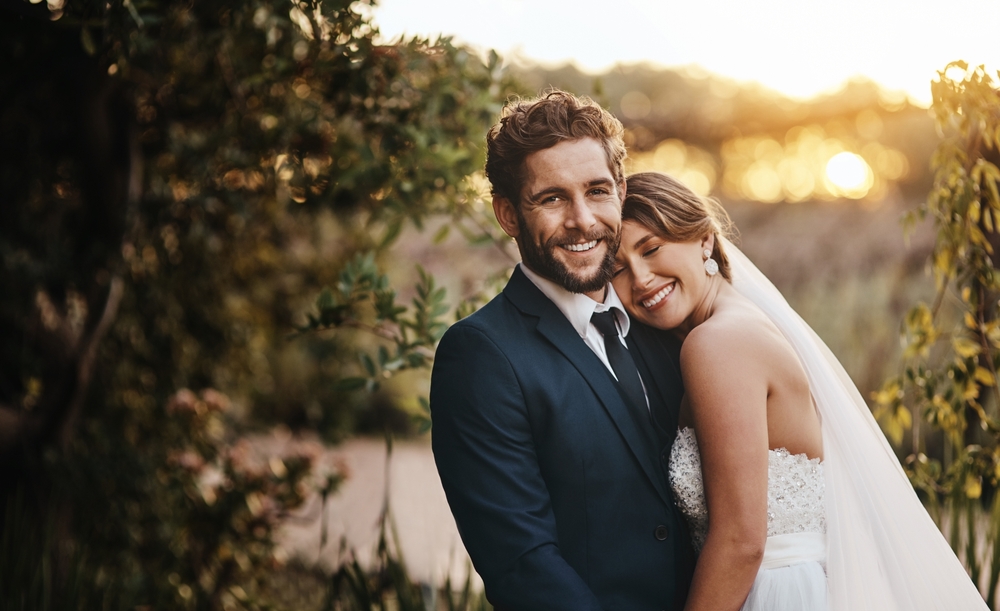Getting married is a big deal, and it’s important to be sure you’re ready for the commitment. Take some time for introspection before walking down the aisle. Asking yourself the right questions can help you gain clarity and ensure you’re making the right decision for your future.
1. Am I truly ready to share my life with this person?

Marriage is more than just a fancy party and a honeymoon. It’s about merging your life with someone else’s, for better or for worse. Are you ready to share your space, your finances, your dreams, and your challenges with this person? It’s not just about the good times; it’s also about supporting each other through the tough ones.
2. What are our shared values and goals?

Having shared values and goals is like having a roadmap for your journey together. Do you both envision similar things for your future? Do you share the same beliefs and priorities when it comes to family, career, finances, and lifestyle? Talking about these things openly can help you avoid misunderstandings and conflicts down the road.
3. How do we handle conflict and disagreement?

Every couple has disagreements, but it’s how you handle them that matters, Psychology Today notes. Do you communicate openly and respectfully, or do you shut down and avoid talking about it? Learning to navigate conflict constructively is crucial for a healthy and lasting marriage.
4. Have we discussed our expectations for finances, careers, and family life?

Money, work, and family are often major sources of stress in marriages. Have you had open and honest conversations about how you’ll handle finances, support each other’s careers, and raise a family (if that’s something you both want)? It’s important to be on the same page about these things to avoid unpleasant surprises later on.
5. What are our individual needs and boundaries?

Even in a marriage, it’s important to maintain your individuality and have personal space. What are your individual needs and boundaries? Do you both respect each other’s need for alone time, hobbies, and friendships outside of the relationship? Recognizing and respecting these boundaries can help you maintain a healthy balance in your marriage.
6. Have we addressed any past traumas or unresolved issues?

Past traumas or unresolved issues can resurface in a marriage and create unnecessary challenges. Have you both addressed any past traumas or emotional baggage that might affect your relationship? It’s important to be open and honest with each other about these things so you can support each other through healing and growth.
7. What are our expectations for intimacy and affection?

Intimacy and affection are important aspects of a healthy marriage. What are your expectations for physical and emotional intimacy? Do you both feel loved and appreciated in the relationship? Open communication about your needs and desires can help you maintain a fulfilling and passionate connection.
8. How do we envision our roles and responsibilities in the marriage?

Traditional gender roles are evolving, and it’s important to discuss how you both envision your roles and responsibilities in the marriage. Who will handle household chores, manage finances, take care of children (if you have them)? Having a clear understanding of these things can help you avoid resentment and ensure a fair and equitable partnership.
9. Are we both committed to personal growth and self-improvement?

Marriage is a journey of growth, both individually and as a couple. Are you both willing to learn, adapt, and evolve together? A willingness to work on yourselves and support each other’s growth is essential for a fulfilling and long-lasting relationship. Stagnation can lead to resentment and dissatisfaction over time.
10. How do we handle stress and challenges as individuals and as a couple?

Life is full of unexpected twists and turns, and it’s important to know how you and your partner handle stress and challenges. Do you lean on each other for support, or do you tend to isolate yourselves? Developing healthy coping mechanisms and communication strategies for dealing with adversity is key to navigating the ups and downs of life together.
11. What are our expectations for communication and openness in the marriage?

Open and honest communication is the cornerstone of any successful relationship. Do you both feel comfortable sharing your thoughts, feelings, and concerns with each other? Are you both willing to listen actively and empathetically? Cultivating a culture of open communication where both partners feel heard and understood can help you build trust and intimacy in your marriage.
12. How do our families and friends feel about our relationship?

While other people’s opinions shouldn’t dictate your decisions, it’s worth considering how your families and friends feel about your relationship. Do they see you as a good match? Do they support your decision to get married? Their insights can sometimes offer valuable perspectives and help you identify any potential red flags you might have overlooked.
13. Are we both willing to compromise and make sacrifices for the sake of our relationship?

Marriage is all about compromise and finding a balance between your individual needs and the needs of the relationship. Are you both willing to make sacrifices for the sake of your happiness together? Remember, it’s not about winning or losing; it’s about finding solutions that work for both of you. A willingness to compromise and put the relationship first is crucial for a harmonious and lasting marriage.
14. Have we discussed our views on religion and spirituality?

Religious and spiritual beliefs can play a significant role in people’s lives. Have you discussed your views on religion and spirituality with your partner? Do you have compatible beliefs, or are there potential areas of conflict? It’s important to understand and respect each other’s beliefs, even if you don’t share them. Open communication about these matters can help you avoid misunderstandings and create a space for mutual respect and understanding.
15. Do we truly love and accept each other for who we are, flaws and all?

Marriage is not about changing someone to fit your ideal image. It’s about loving and accepting them for who they are, flaws and all. Do you genuinely appreciate your partner’s quirks, strengths, and weaknesses? Are you both willing to work on your shortcomings and support each other through personal growth? Remember, true love is about embracing imperfections and celebrating the unique qualities that make your partner who they are.
16. Are we both willing to seek professional help if needed?

As Forbes explains, asking for help is not a sign of weakness, but rather a proactive step towards addressing any challenges that may arise in your marriage. Are you both open to the idea of couples therapy or counseling if needed? It’s a safe space to discuss your concerns, learn healthy communication skills, and navigate difficult situations with the guidance of a trained professional. A willingness to seek help when needed demonstrates a commitment to the growth and well-being of your relationship.



